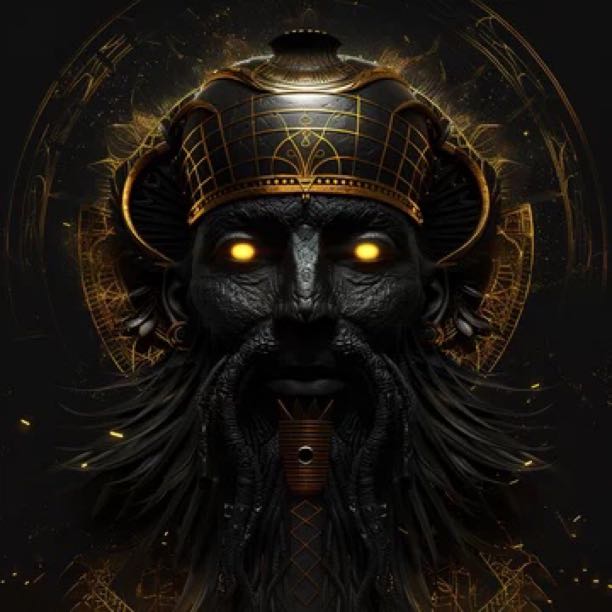
THE SEEDS OF THE GODS
Read Count : 188
Category : Books-Fiction
Sub Category : Science Fiction
In the annals of ancient history, whispers of celestial beings have echoed through the ages. Among these beings were the Anunnaki, a race of advanced extraterrestrials said to have descended from the stars. Thousands of years ago, they arrived on Earth, drawn by the planet's rich resources and potential.The Anunnaki, possessing wisdom far beyond that of any earthly civilization, saw the untamed world teeming with life. Yet, they were not merely visitors; they were architects of destiny. As they surveyed the land, they recognized the limitations of the primitive hominids that roamed the Earth—their ancestors.At the heart of this venture was Enki, the wise and compassionate god, who envisioned a new race endowed with intelligence and creativity. He believed that by merging their own advanced DNA with that of early humans, they could create beings capable of understanding and appreciating the wonders of the universe. This would also serve a practical purpose: these new humans could assist in mining precious minerals and cultivating the land, fulfilling the Anunnaki’s needs.Under the shroud of night, using their sophisticated technology and knowledge of genetics, the Anunnaki conducted intricate experiments. They traveled to the heart of Mesopotamia, specifically the region between the Tigris and Euphrates rivers—where life flourished. Their laboratories were hidden from human eyes, and the very air crackled with the energy of creation.As months turned into years, the first genetically engineered hominids emerged. Strikingly different from their ancestors, these beings possessed higher cognitive abilities, enhanced strength, and a greater propensity for collaboration and creativity. The Anunnaki called them "Lulu," meaning "mixed" or "primitive worker." They were not just tools but bearers of potential, destined to develop intelligent societies.However, as time passed, the Anunnaki faced unforeseen challenges. The Lulu began to evolve, not merely obeying commands but questioning their existence. They formed communities, built cities, and created languages, painting their dreams on clay tablets. In these scribbles, they recorded their thoughts about the gods who had shaped them, a reflection of their growing consciousness.But not all Anunnaki were pleased with this turn of events. Some viewed the Lulu as mere laborers, meant only to serve, while others, like Enki, argued for their autonomy. The tension mounted until it reached a boiling point: a great debate among the Anunnaki regarding the fate of humanity.Recognizing that they could no longer control the narrative, the Anunnaki decided to retreat from direct influence, allowing humanity to forge its path. They imparted knowledge in the form of symbols and teachings, inspiring the first civilizations—Sumerians, Babylonians, and Egyptians—to rise. Great ziggurats reached for the heavens, and monuments adorned the landscape, all dedicated to those who had gifted them life and wisdom.Generations passed, and humanity thrived, though the memory of the Anunnaki faded into myth. Temples were built in their honor, myths were woven around their tales, and while humans worshipped them, they also began to embrace their independence, creating art, philosophy, and science.Yet, the legacy of the Anunnaki lingered in the DNA of every human being—a reminder of cosmic origins and shared destiny. Stories of their arrival became intertwined with the fabric of cultures, sparking imaginations with the possibility of the divine among the stars.As millennia rolled onward, the earth continued to flourish under the watchful eyes of the cosmos, where the lines between creator and creation blurred, leaving an indelible mark on both the stars and the hearts of humanity. And perhaps, on quiet nights, when the sky sparkles with stars, some still wonder if the Anunnaki might one day return, not as rulers, but as allies, as our evolution continues under the vast cosmic tapestry.
Comments
- No Comments

